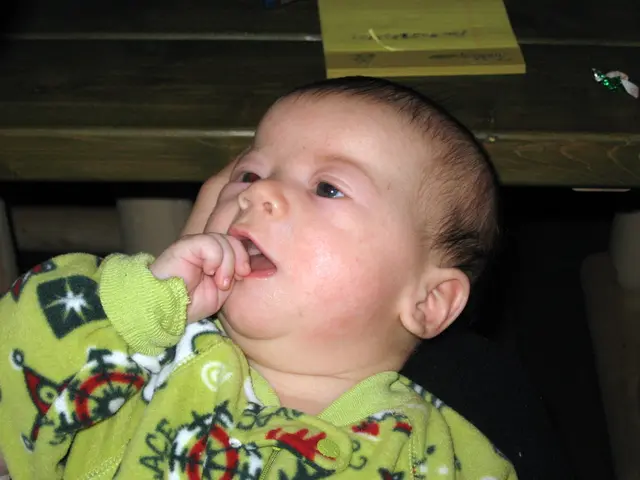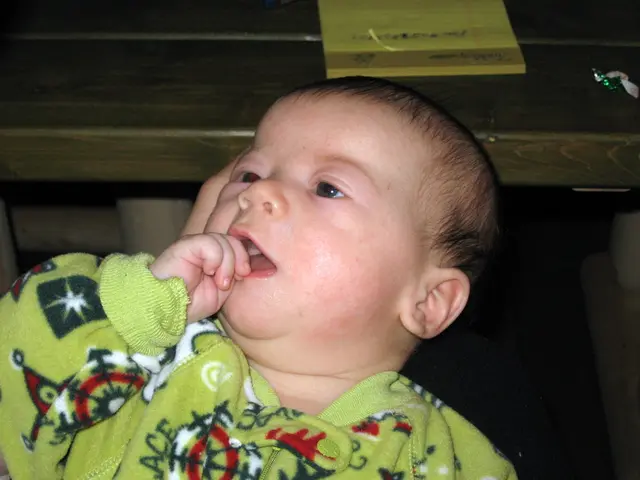Navigating the Tough Journey: Empowering Families with Chronically Ill Children
Supporting Young Patients and Their Families Enduring Pediatric Critical Illnesses - Strategies for Helping Families Coping with Critically Ill Children
When a child or young individual is battling a severe illness, it becomes a daunting challenge for the entire family, straining emotional, financial, and logistical resources. To address this, the children's palliative care teams in North, Central, and South Hesse are offering invaluable support, focusing on alleviating distressing symptoms for the child and fortifying the family.
An innovative approach to this care is taking shape in Kassel through the "Little Giants House." The project aims to educate parents on home care for their ill child, acting as a bridge between hospital care and at-home care.
"In Hesse, the lack of outpatient [care] for children and young people is alarming," states Thomas Voelker, head of the "Little Giants North Hesse" children's palliative care team. Despite the increasing number of chronically ill children, professional expertise to provide adequate care is in short supply.
Homely Guidance for Home Care
Scheduled to open from late 2026, the "Little Giants House" can accommodate and guide up to eight families in home care for their child, providing an interdisciplinary team of medical professionals, psychologists, and therapists. Parents will learn the intricacies of using medical equipment, dealing with emergencies, and mastering everyday tasks like grocery shopping while managing their child's care.
"We provide answers to the families' questions, such as how to manage all these technical aids or how to change cannulas," explains Voelker. "It's not just about medical care; it's about teaching everyday skills that will make life easier for the families."
State and City Financing
The "Little Giants House" will receive around €8 million in funding from the state of Hesse and the city of Kassel. The project is also backed through a care program agreement with AOK Hesse, the country's largest healthcare provider.
The compassionate initiative serves families across central Germany, ranging from Hannover to Koblenz and Bielefeld to Jena. Along with a comparable project in Hamburg, the "Little Giants House" is set to be the first building nationwide designed to support families in this transitional care.
"The house will make a significant impact in the care of children and young people in Hesse," says Bettina Mathes, representative for hospice work. Nevertheless, a reported shortage of skilled professionals in pediatric and youth palliative care persists, with the current odds stacked against families.
The emotional, financial, and logistical burdens on families struggling with a chronically ill child are colossal. Yet, they often face the struggle in isolation, with little community awareness and support. To help ease this strain, the pediatric palliative care teams in Hesse remain indispensable in providing supportive systems and resources to these families facing unforeseen obstacles.
- Recognizing the need for extensive support, community policy makers are working to address the chronic disease issues among children through initiatives like vocational training programs for caregivers and parents in home care situations.
- In the context of health and wellness, it's essential to mention that resources focused on family health, mental health, and parenting are becoming vital as families navigating chronic illnesses struggle with added stress and pressure.
- Besides learning the technical aspects of home care, such as operating medical equipment and managing emergencies, the "Little Giants House" will offer vocational training for parents on fitness and exercise routines tailored to their child's conditions, ensuring a holistic approach to care.
- The implementation of the "Little Giants House" is seen as an important step towards reducing the strain caused by chronic diseases, as it will provide families with mental health support and guidance on various medical-conditions and their management.
- As part of the overall health-and-wellness ecosystem, it's crucial to encourage partnerships between government entities, healthcare providers, and non-profit organizations to fund research and development in vocational training and education associated with chronic illnesses and family health.








